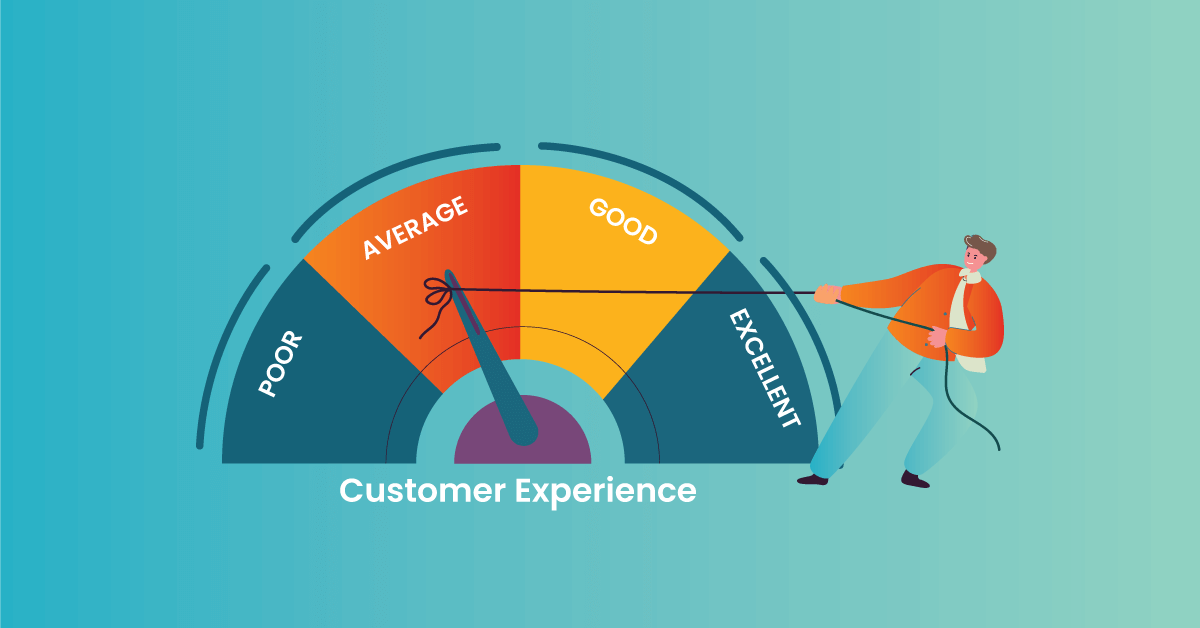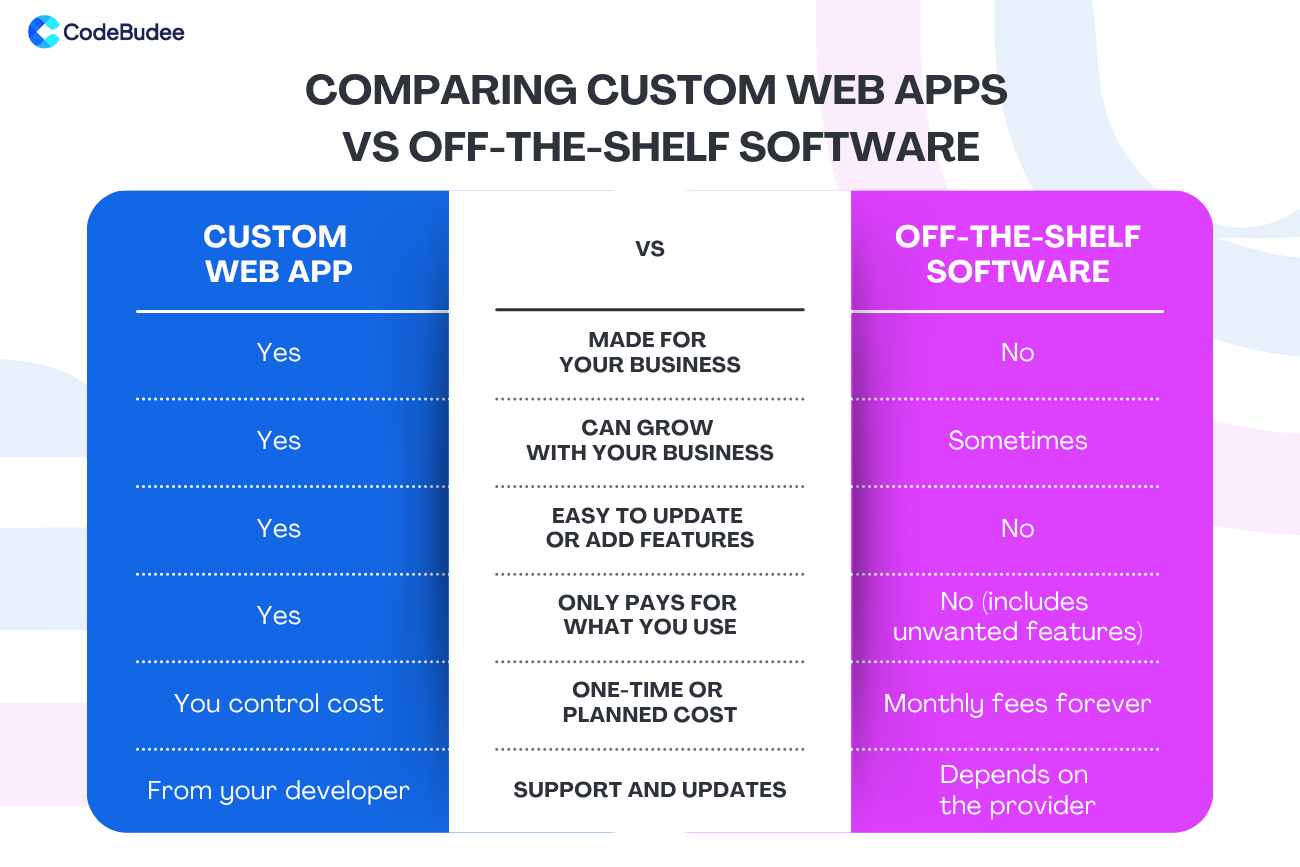By 2025, SMEs are speeding up the transformation from basic websites and general-purpose software to custom web applications. This change is because companies need more flexible, automated and efficient tools to stay competitive. This article explains why this trend is expanding, how custom web applications can help companies solve problems, and what is happening in countries such as Malaysia, Singapore, Australia and New Zealand.

What Is a Custom Web Application?
Custom web applications are software tools designed for specific companies. It works with web browsers such as Chrome and Safari and is designed to handle tasks such as order management, inventory tracking, reservation reception, customer information management, etc. Unlike commercially available software (made for general users), custom web applications are built from scratch with the specific needs of the enterprise in mind. This makes it an easy-to-use and effective tool that includes only the functions that companies need.

Why More SMEs Are Moving to Custom Web Apps
With business needs becoming more complex in 2025, many SMEs are aware that basic websites and existing software are no longer meeting their needs. This has led more companies to consider utilizing custom web applications that fit their daily operations.
1. Better Fit for Business Needs
General-purpose tools contain too many redundant functions or insufficient necessary functions. For instance, a typical reservation system is not likely to be able to handle services, staff hours, and package charges at various times. However, custom solutions can be tailored to meet their precise needs.
2. Easier to Grow With the Business
As SMEs grow, new features, more user support and more powerful reporting tools may be needed. Custom apps are flexible so you can grow with your business. No need to rebuild or switch to a new system when adding new features.
3. Saves Time Through Automation
Organizations are losing time in typing the same data in various places or manually sending reminders. Custom web apps can do these automatically. For instance, a cleaning business can create an app that automatically sends reminders to clients and allocates personnel depending on location and availability.
4. Safer and More Secure
Custom apps can feature powerful security features such as user-level access, secure login, and encrypted data storage. You can also comply with local data protection regulations in areas where privacy laws are strict, such as Singapore and Australia.
Examples of Real Business Problems Solved with Web Apps
Many small and medium-sized enterprises face common challenges that delay their daily operations, such as booking management and inventory tracking. Here is a real example of how custom web applications have effectively solved these challenges.
A Retailer in Kuala Lumpur
Fashion clothing stores in Kuala Lumpur needed to keep online and store inventory within a single system. The current POS software was not capable of syncing with the online store. We created a customized web application and integrated the two systems. Now customers can view real-time inventory status on the website and employees can restock inventory more quickly.
A Spa in Sydney
Spa in Sydney wanted to strengthen control over booking management. Existing systems could not set package plans or flexible booking times. The custom booking web app allows customers to choose from multiple services, book different times, and receive email reminders. This reduced no-shows and increased repeat customers.

Key Features SMEs Are Asking for in 2025
As more businesses invest in custom solutions, a few features have become more popular:
Personalized Solutions for Unique Business Needs
Software bought from the market might not have features tailored to a company's unique needs. Custom web applications are created to satisfy the company's individual needs, with all features being relevant and convenient. For instance, businesses can install custom CRM systems that integrate with inventory and EC platforms for centralized customer interaction and management of inventory levels.
Scalability to Support Growth
Software needs also shift as businesses expand. Scalable custom web applications are built with growth in mind and will expand with your business. Commodity solutions become outdated or need costly updates, but custom programs can be quickly scaled to support growing needs of data volume, users and more features.
Improved Efficiency and Productivity
Custom web applications can simplify workflows by eliminating redundant activities and extra steps in the process. For instance, custom applications combine data entry, stock management, and customer support functionality into an integrated, single interface that allows workers to spend more time on more valuable activities.
Enhanced Security
Security is a top priority for companies operating in an online environment. Security is of the utmost importance, especially for companies dealing with sensitive customer information and financial transactions. Advanced security capabilities can be introduced in custom web applications designed to fit enterprise risk profiles. This includes encryption, user authentication, and data storage methods to enable applications to comply with security standards and industry regulations.
Better Integration Capabilities
Custom web applications are programmed to work in conjunction with other software to provide a unified platform for varied business activities. Custom financial applications, for instance, can work together with existing accounting software, payment systems, and bank APIs to simplify financial transactions.

Trends in Malaysia, Singapore, Australia, and New Zealand
In each of these countries, SMEs are adopting custom digital tools for different reasons:
Malaysia
The government initiative encourages the online development of small businesses. Incentives in the form of subsidies and tax credits have boosted investment in applications that process employee schedules, track sales, and process orders.
Singapore
Singapore boasts a strong technology ecosystem, with most SMEs using tools to automate their operations. Multilingual and multi-currency applications are also becoming popular to support international buyers.
Australia
In Australia, many small businesses focus on customer service. Web apps are used to manage customer feedback, send quotes, and manage reservations. The construction, cleaning and real estate industries are particularly active in the use of digital tools.
New Zealand
New Zealand SMEs employ the use of digital tools to facilitate work-life balance and remote teams. There are custom web apps that monitor working hours, project activities, and customer communication that enable you to operate your business efficiently even when you're not physically in the office.

Industries Benefiting the Most from Custom Web Applications
While custom web apps are versatile and used in many industries, there are industries that have achieved particularly high results in 2025. Below are five industries where custom apps are game changers:
Retail and E-commerce
Merchants utilize bespoke web applications to integrate online and offline stores, tailor promotions and optimize customer loyalty. One platform for inventory management, supply chain planning, and direct integration with CRM solutions. This allows for instant price and stock adjustments to achieve an effortless customer experience across channels. With a highly competitive web market, these integrations enhance operational effectiveness, enhance customer satisfaction, and drive sales through immediate response to buying patterns.
Health and Wellness Services
Clinics, spas and gyms benefit greatly from customized schedule systems, electronic health records and personalized service recommendations. Custom apps in this area support flexible bookings, customer history and integrated payment gateways. You can also send reservation reminders and manage package plans. This improves staff workflows and customer retention. The ability to customize features to each service model helps providers to deliver a smoother and more professional experience and improve customer outcomes and satisfaction.
Professional Services (Lawyers, Accountants, Consultants)
Law, financial, and consulting firms are built on meticulous record keeping, tight timelines, and customer confidentiality. Custom applications provide confidential customer portals tailored to document control, auto-invoicing, and expert services. Case tracking and audit trails provide compliance, and calendar integration facilitates consultation and deadline planning. These solutions decrease paperwork and enhance accuracy of reporting a critical element of any professional services firm seeking to build trust and streamline their processes.
Logistics and Delivery Services
Logistics businesses need real-time tracking, route optimization, and dynamic schedule management. Apps custom-built for delivery services assist in vehicle management, minimizing idle time, and providing real-time updates to consumers. GPS and map tool integration enhances delivery accuracy and efficiency. Predictive analysis of fuel consumption and delivery times is also provided to lower costs and enhance customer communication.
Construction and Field Services
In the field services and construction sectors, without systems, worker schedule management, tool tracking, and site management become muddled. Custom apps allow project managers to task workers, see progress in real time, and remotely gather field data. Field staff can submit photos from the field, mark checklists as complete, and clock work hours. These systems greatly reduce paperwork, cut down on misunderstandings between teams, and drive better adherence to schedules and budgets.

How Custom Web Apps Improve Customer Experience
Customer expectations in 2025 are high. Businesses should deliver quick, personalized and consistent interactions across every point of contact. Custom web apps facilitate this by streamlining customer experience on all fronts.
Personalized Interactions
Personalized apps can welcome users with their names, offer them products they have purchased before, and change the interface according to their needs. Such personalization generates loyalty and makes users feel that they are valued. Businesses are able to use data gleaned from the app to offer tailored discounts, messages, or services. These personalized features over time become a strong competitive edge, resulting in better conversion and customer retention in many businesses.
Streamlined User Journeys
Extra clicks and confusing steps lead to user withdrawal. Custom apps can design processes such as booking, purchasing, and service requests with an intuitive flow. Companies can reduce friction by removing unnecessary fields and integrating actions into a single page. Smooth processes such as spa bookings and checkout of goods promote more successful transactions. These simplified user experiences increase customer satisfaction and reduce abandonment behavior in critical steps.
24/7 Access and Support
Custom web apps allow teams to interact with companies even offline. Automated support, such as FAQs, chatbots and status updates, ensures that users get the assistance they need at any time. Features such as a self-service portal allow customers to check orders, reschedule reservations, and submit requests without the help of staff. This round-the-clock availability enhances user trust and provides SMEs with the appearance and functionality of leading companies.
Consistent Branding Across Devices
Custom app designs can perfectly reflect brand identity on desktop, tablet and mobile. From logo placement to automatic message tone, all elements enhance your business image. This allows you to establish a professional and reliable impression. Consistent branding improves user trust and promotes re-visits with accustomed and comfortable digital environments.
Feedback and Reviews Integration
Custom apps allow customers to leave reviews, suggest improvements, and incorporate tools to evaluate services. This not only builds the trust of future customers, but also provides valuable insights into operations. By integrating these functions into the user interface, more people will use it. Real-time feedback helps companies adapt quickly, respond to concerns and show that customer opinions are important. This improves both service quality and brand reputation.

Technical Considerations When Developing a Custom Web App
Excellent custom apps have a conceived technical foundation. For SMEs, understanding the key components ensures investment in the right solutions for long-term value.
Frontend and Backend Technologies
Choice of technologies like React (front end) and Laravel (back end) influences all the way from speed to security. The developers select these technologies based on the purpose, complexity and future scalability of the app. The well-integrated technology stack provides a stable and efficient application capable of end-user load, updates and integration without a hitch. It should be essential that developers are in a position to justify why such choices are aligned with their business objectives.
Mobile Responsiveness
By 2025, most users will access business services via smartphones. The custom app must work seamlessly on all screen sizes. Responsive design is designed to adapt layout and functionality for mobile, while not compromising usability. This not only improves the user experience but also improves accessibility and enables service to the wider tier. Companies that downplay mobile design risk losing customers who expect perfect performance on the move.
API Integrations
Custom apps can also have to interface with other systems like payment gateways, mail services, accounting packages, etc. APIs (application programming interfaces) provide interoperability between platforms. Using existing APIs, custom apps can be made central hubs for many operations, with reduced time and less data silos. EC sites can be integrated with PayPal, Xero, and WhatsApp for easy operations without the need to change platforms as an example.
Hosting and Deployment Options
The destination where the app is hosted influences speed, security and reliability. Scalable hosting via cloud hosts like AWS, Azure and DigitalOcean comes with user-demand-based scalability. Developers select the appropriate provider depending on projected traffic and budget. Continual deployment strategies like continuous integration and automated testing ensure that updates don't ruin the system. Properly configured, the app remains fast and secure 24/7.

What Does It Cost to Build a Custom Web App?
Prices depend on the features that you require, but small custom applications can begin at thousands of dollars. Most businesses view this expense as an investment. Apps save money over time by saving labor costs, minimizing errors, and stopping payments to multiple systems.
How to Get Started with a Custom Web App
If you're thinking about building a custom web app for your business, here are a few steps:
- List your problems: Write down the things in your business that are time-consuming, confusing, or slowing you down.
- Talk to your team: Ask employees what would help make their jobs easier.
- Start small: Focus on one or two problems first, and build from there.
- Choose a good developer: Work with someone who understands both business and tech. Check their past work and reviews.
- Test before launching: Use the app yourself and ask staff to test it. Fix any issues before making it public.
Looking for a Custom Web Application Tailored to Your Business Needs?
CodeBudee helps startups and small businesses shape their ideas with powerful, easy-to-use custom web apps. We understand that every business is different, so we build tools tailored to your specific needs rather than general templates. We can respond to any needs such as automation of operations, improved customer experience, or safe scale up. From planning to release, our professional team will support you. With clear communication and reliable support, CodeBudee is not just a developer but a long-term technical partner.
Why Choose CodeBudee?
- Tailored Solutions: We build each web application specifically for your business—no one-size-fits-all templates.
- Startup-Friendly Approach: We understand the challenges of growing businesses and offer scalable solutions that evolve with you.
- Strong Security Practices: Your data and user privacy are protected with enterprise-level security built into every app.
- Mobile-Ready Designs: All our apps are fully responsive, delivering seamless user experiences across all devices.
- Easy Integrations: We connect your app with payment gateways, CRMs, analytics tools, and more everything works together smoothly.
- Long-Term Support: From concept to post-launch, we offer ongoing help, updates, and improvements as your business grows.
Final Thoughts
Custom web applications are no longer luxury. It is an essential tool for SMEs aiming to operate efficiently, safely and scalably in 2025. Investing in custom digital tools enables companies to overcome everyday challenges, simplify operations, and deliver better customer experiences. In any case, the well-designed web app will keep you under control. CodeBudee works closely with startups and growing companies to build solutions that fit workflows rather than align them with them.


